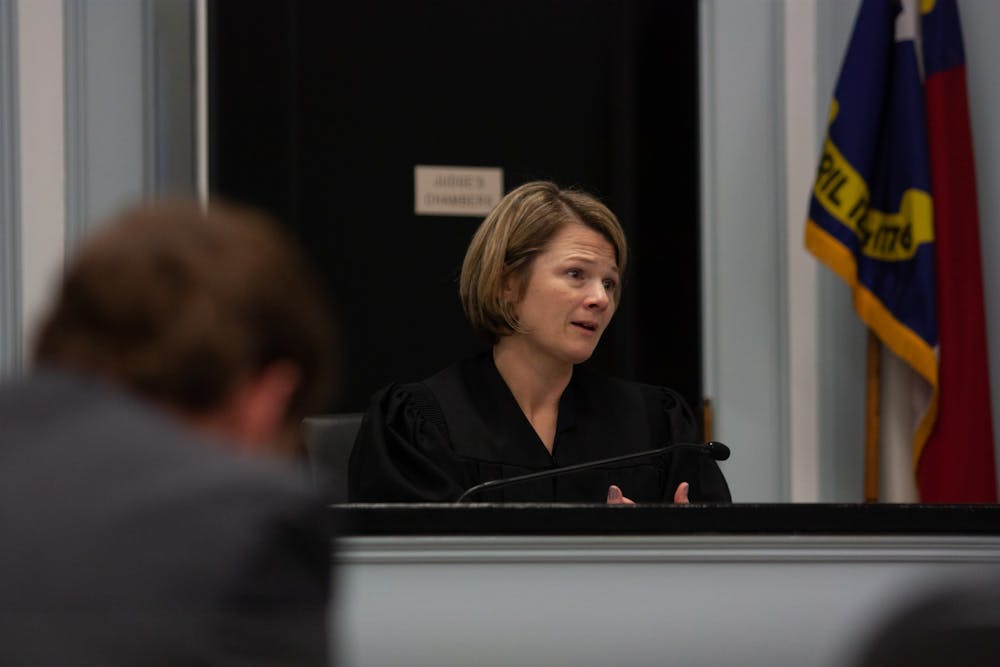Less than a quarter of North Carolina counties have drug treatment courts, and Orange County is one of them.
Drug treatment courts in Orange County work actively with people who have substance use disorders to turn their lives around and give them the tools they need to succeed.
Orange County has two drug treatment courts — Recovery Court and Family Treatment Court.
Caitlin Fenhagen, director of the Criminal Justice Resource Department in Orange County, said both courts offer alternative opportunities for those who otherwise could face jail time or not receive the treatment they need to recover.
“It’s not just a substance-use issue,” Fenhagen said. “We’re providing a lot of different services to try and ensure that not only are they in recovery at the time of graduation, but that they’ve otherwise stabilized things in their lives.”
Fenhagen said Recovery Court works within criminal court and focuses on treatment for someone who is facing a minimum 120-day jail sentence for a crime thats underlying cause is a drug use disorder.
Family Treatment Court focuses on helping parents or guardians who have a drug-use disorder receive treatment in order to improve the custody situation with their children. While Recovery Court works within the criminal court system, Family Treatment Court works with the Department of Social Services court to provide a solution for people at risk of losing custody of their children.
Andrea McSwain is the Family Treatment Court case manager, and went through Family Treatment Court as a participant prior to working for the court. She said participants in the program may be able to keep custody if they meet all the requirements of the program and go through treatment.
“I know exactly what the participants are going through when they say that they are overwhelmed,” McSwain said. “I think my experience gives them a little bit of security, knowing that I didn’t just learn what I’m telling them because I went to school to do so, but knowing that I’ve actually had to go through these things.”




